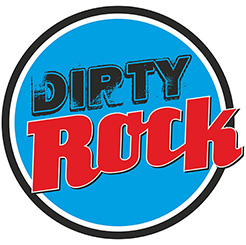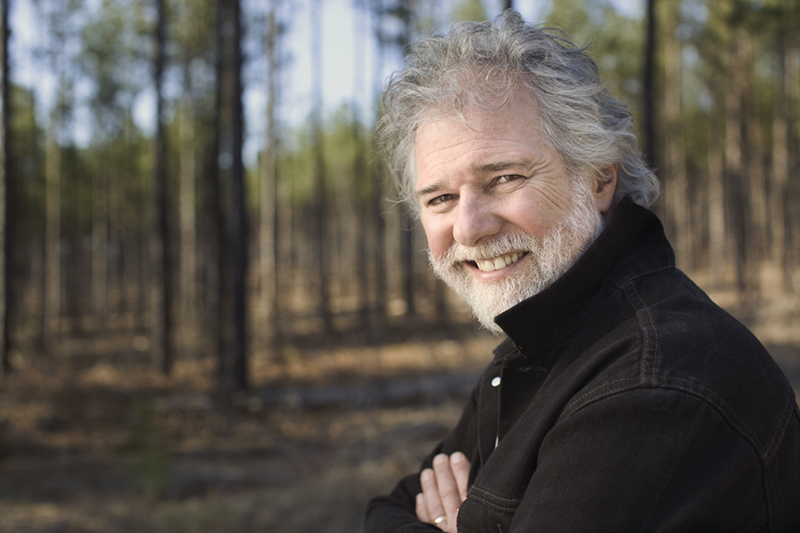Chuck Leavell, uno de los creadores de la banda sonora de una generación teñida de Rock Sureño. 40 años con los Rolling Stones dejando su huella sureña.
Entrevistamos a Chuck Leavell, [original interview in English below] considerado el mejor pianista de rock ‘n’ roll de su generación, es uno de los grandes secundarios y silenciosos de lujo en el panorama musical, actual director musical de los Rolling Stones, teclista, productor y uno de los músicos de sesión más importantes del rock ‘n’ roll por un lado, y un célebre ambientalista con una obsesión, la naturaleza y los bosques.
Además de teclista de los Stones, el de Georgia, es el director musical de la banda durante las giras desde hace 4 décadas. Antes trabajó para Capricorn Records y Dr. John, y se unió a los Allman Brothers justo después de la muerte de Duane Allman comenzando a grabar nada más y nada menos que la obra maestra «Brothers and Sisters» en 1973, cuando tenía 20 años.. Su piano también alimentó el álbum de Gregg Allman, «Laid Back» , el álbum «Unplugged» de Eric Clapton, y fue cofundador del conjunto de jazz-rock Sea Level, que tomó su apodo de su primera inicial y apellido.
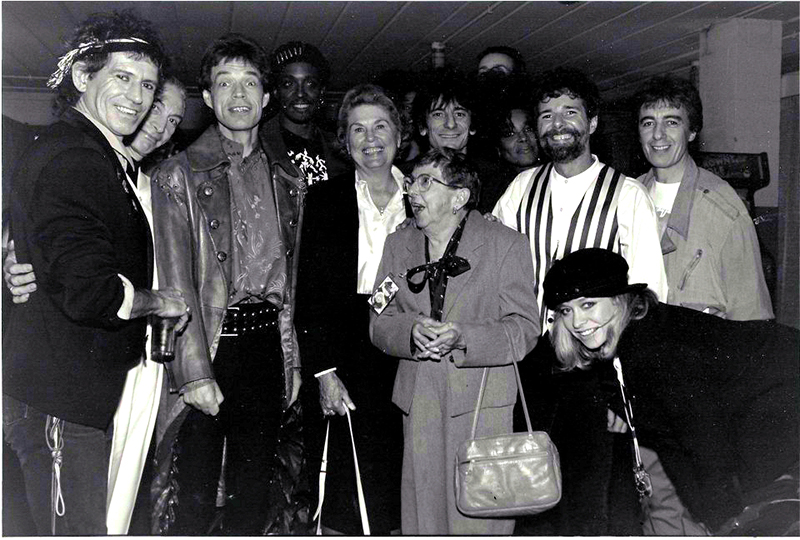
Leavell también ha tocado o grabado con muchos otros músicos destacados, incluidos Eric Clapton, Aretha Franklin, George Harrison, Black Crowes y David Gilmour de Pink Floyd. El último de sus seis álbumes en solitario, «Chuck Gets Big» del año pasado, lo encuentra respaldado por una banda de música de 17 músicos e interpretando canciones originales junto con clásicos de los Stones, los Allman Brothers y otros artistas. Leavell es tan apasionado por el medio ambiente como por la música.
Fue cofundador de Mother Nature Network, un sitio web de noticias ambientales que atrae a más de 10 millones de visitantes mensuales; y administra una plantación forestal de pino amarillo del sur de 4,000 acres en Georgia, donde vive con su esposa desde hace casi cinco décadas, Rose Lane. Su programa de televisión, America’s Forests with Chuck Leavell, presenta a personas apasionadas por la preservación de los hábitats forestales. Ha escrito tres libros sobre ese tema, así como una autobiografía, Between Rock and a Home Place. En 2020 se estrenó en cines el documental sobre su vida musical y su vida como agricultor forestal, llamado «Chuck Leavell: The Tree Man».
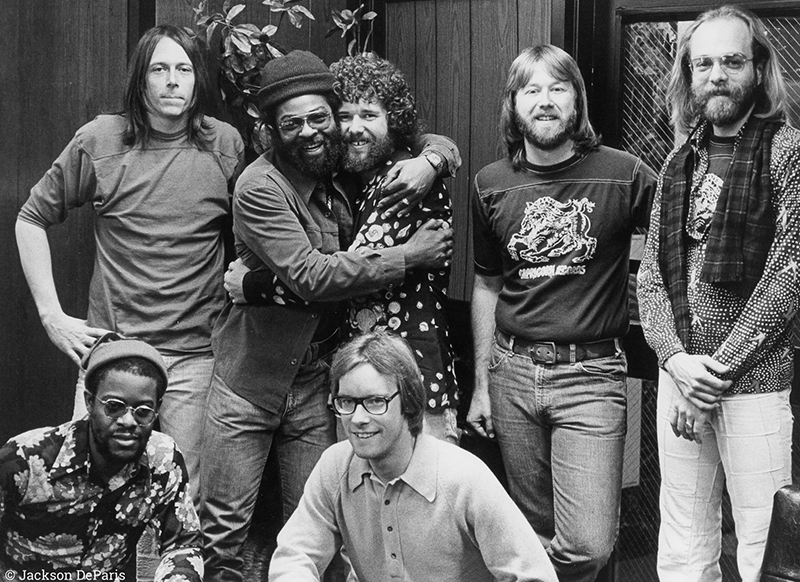
The Charlie Daniels Band, Cowboy, The Marshall Tucker Band, Wet Willie, George Harrison, David Gilmour, Aretha Franklin, AC/DC, Dr. John, Eric Clapton, Hank Williams Jr., Kitty Wells, Gov’t Mule, Train, Tinsley Ellis, The Black Crowes, John Hiatt, Keith Richards, Ronnie Wood, The Fabulous Thunderbirds, Montgomery Gentry, John Mayer, Miranda Lambert, Blues Traveller, etc. La lista es inmensa de colaboraciones de Chuck Leavell. Uno de los grandes, grandes Chuck Leavell.
La vídeo entrevista se llevó a cabo durante la estancia de Chuck Leavell en Ámsterdam con motivo del séptimo concierto en la capital holandesa el 7 de julio dentro de la gira aniversario «SIXTY».
Entrevista a Chuck Leavell con motivo de la gira 60 aniversario de The Rolling Stones:
JESSICA: Dirty Rock Magazine aquí en España con Chuck Leavell. Muchas gracias, Sr. Leavell, por tomarse un tiempo de su apretada agenda para hablar con nosotros en Dirty Rock. Sinceramente, no sé de dónde sacas el tiempo o la energía para seguir con todo lo que haces… Además de ser uno de los mejores pianistas de la historia del rock ‘n’ roll, eres el director musical de la gira del 60 aniversario de los Rolling Stones, ensayando y tocando de una ciudad a otra, documentándolo todo… ¿Cómo te propusieron ser el director musical de la banda?
CHUCK: Bueno, es algo que se transformó un poco con el tiempo. A veces me río del título, en verdad. Mick y Keith son, en realidad, los directores musicales de los Rolling Stones. Tal vez debería decir que soy director musical ADJUNTO… Sucedió que allá por 1989, cuando estábamos ensayando para la gira STEEL WHEELS, comencé a apuntar muchas cosas: tablas de acordes escritas a mano de cada canción que ensayábamos, si incluíamos partes de viento cuando ensayamos, si hubo coros y lo que estaban cantando, o si cambiamos el arreglo por cualquier motivo con respecto al disco, como a veces se hace. Mi técnico vio lo que estaba haciendo, y me dijo, «Oye, en lugar de dejar que esos papelitos con todos los apuntes se arruguen o lo que sea, déjame buscar un cuaderno para guardarlos.» Y así lo hizo. Y cada vez que apuntaba cosas, él pondría los apuntes dentro de una hoja de plástico para guardarlas en el cuaderno. Ese proceso continuó durante todo el período de ensayo y cuando hicimos las pruebas de sonido para la gira STEEL WHEELS, si había algo importante, lo agregaría.
Y luego, la siguiente gira fue VOODOO LOUNGE y seguí haciendo lo mismo. A lo largo de los años, ¡40 años ahora! – han habido muchos apuntes! Ahora tengo dos cuadernos enciclopédicos con todo este material de referencia, por así decirlo. Guardo muchas de las cosas en mi cabeza, Jessica, pero si no puedo recordar un arreglo que hice, entonces tenemos una referencia. Siempre llevamos esos cuadernos con nosotros. Y ahora, de vez en cuando, mi labor se traduce en una especie de director, dando pistas visuales. Pasó especialmente cuando Charlie estaba con nosotros, porque Charlie, siendo un batería de jazz, bueno, se sentía abrumado por el rock and roll de vez en cuando para ser honesto, así que, si venía un cambio de ritmo o algo diferente en el arreglo, Charlie podía buscarme con la mirada. Yo le hacía una señal con la mano o asentía con la cabeza. A veces haría lo mismo para Mick, cuando él estaba amenizando al público, y ya sabes, haciendo que la gente aplauda y cante… Es así como surgió el título.
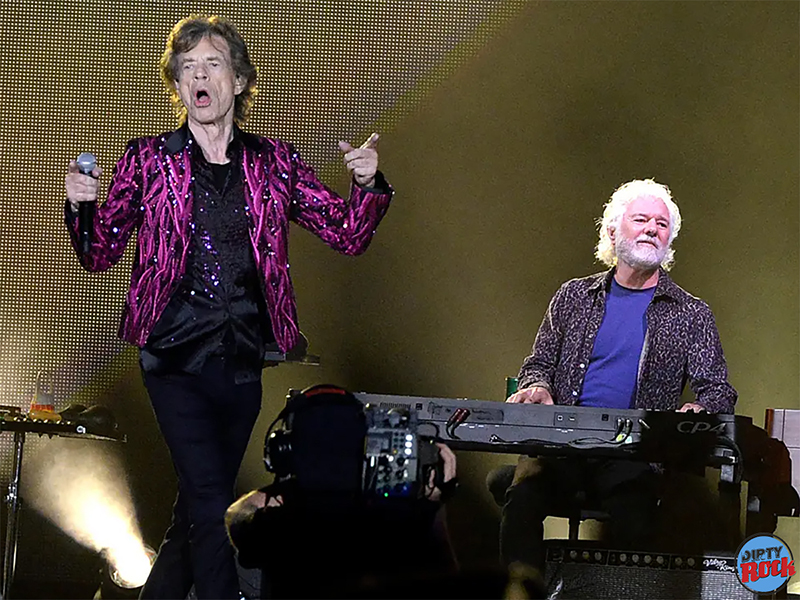
JESSICA: Hablando de documentar, hemos visto tu reciente película documental «The Tree Man», que nos recordó que además de ser músico, también estás hecho de carne y hueso y nos acercó más a tu lado ‘humano’ … El documental dio a conocer a muchos de tus seguidores tu larga implicación ecologista. ¿Cuál es tu punto de vista sobre el futuro de nuestro planeta? ¿Eres optimista?
Chuck: ¿Está el vaso medio vacío o medio lleno? Definitivamente medio lleno, pero me temo que el vaso está cada vez más vacío y eso nos debería preocupar a todos nosotros. Es simplemente innegable… Cualquiera que diga que el cambio climático no es real o que el calentamiento global no es real, es un inconsciente. Simplemente no está viviendo en el mundo real. Es algo tan obvio. Vemos los cambios en el clima, los incendios, las sequías, vemos el nivel del mar subir… Todos estos son hechos innegables, y sabes, estoy preocupado, sí. En mi propio país, en Estados Unidos, no estamos moviendo las cosas lo suficientemente rápido. Empezamos a hacer bastantes cosas bajo la administración de Obama pero luego la administración de Trump entró y frenó todo. Ahora, Biden está haciendo todo lo posible para ponerse al día, pero no es fácil. Por ejemplo, un país como Venezuela, un país pobre, un país del tercer mundo… depende de los combustibles fósiles para obtener ingresos para sostenerse económicamente. No tienen muchas otras opciones para ganar dinero.
Jessica: Sí, les quitas eso, ¿y qué tienen?
Chuck: Exacto. Así que es complicado. No puedes decir, ‘¡Venezuela, no saque más petróleo de la Tierra!’ ¿Qué harán? Entonces, son situaciones complicadas que deben ser mitigadas y resueltas por los países ricos del mundo, incluidos los Estados Unidos y partes de Europa. Así que ya sabes, solo se puede hacer lo que se puede, pero creo que debemos hacer más.
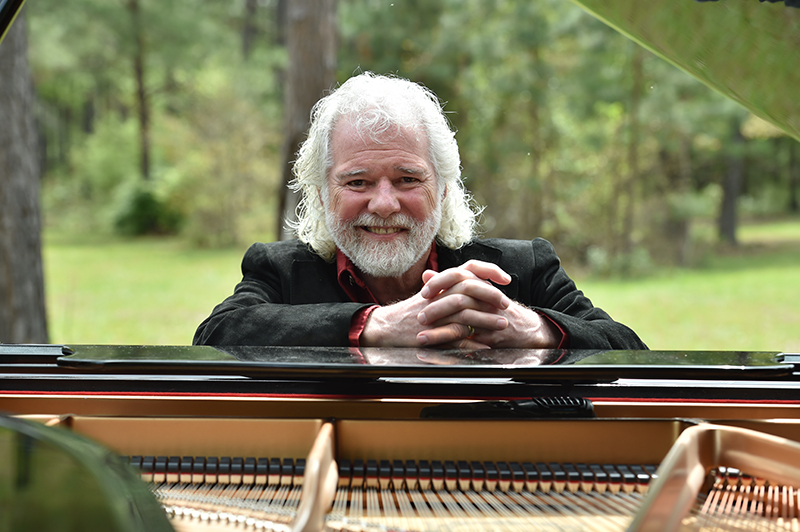
Jessica: Bueno, esperemos que las nuevas generaciones sean capaces de revertir la situación, o por lo menos, frenarla un poco. Me encantó la película y, especialmente, todas las citas y bromas de las personas involucradas en ella… Me reí mucho cuando Billy Bob Thornton te llamó un ‘unicornio del rock and roll’… ¡Fue fantástico! Tienes tantas facetas diferentes. Y uno de ellas es la producción. Llama la atención que te hayas prodigado tan poco en eso, aunque los resultados hayan sido tan disfrutables. ¿Cuáles son las razones para que no hayas profundizado más en esa faceta?
Chuck: Sí, he hecho un poco. Supongo que, en verdad, es necesario que la gente te contacte para hacerlo, ¿verdad? (risas) Alguien tiene que llamarme y decir ‘Oye, necesito que me ayudes a producir un disco’, y honestamente no he recibido tantas llamadas.
Jessica: Estás demasiado ocupado, ¿Cómo te van a encontrar? (risas)
Chuck: (risas) Bueno, no lo sé. Me gustaría hacer más. Creo que soy un poquito hábil para hacerlo. Pero de veras, me siento afortunado por poder hacer todo que hago, tanto en el mundo ambiental como en el mundo de la música, y con mi familia también.
Jessica: Bueno, has hechos muchas cosas durante una carrera tan larga cómo exitosa, pero para nosotros en Dirty Rock, es con Sea Level dónde mejor pudiste expresarte y brillar. ¿Qué significó para ti la creación de una banda tan extraordinaria, tan anticipada a su tiempo?
Chuck: (risas) ¡Bueno! ¡Gracias por mencionarlo! Significó mucho para mí. En primer lugar, me dio un gran empujón hacia los focos mediáticos. Nunca había sido el líder de una banda o el cantante principal o ese tipo de cosas. Así que fue un poco abrumador; no estaba acostumbrado y tuve que prepararme para el papel y seguir adelante con él.
Jessica: Eras muy joven en ese momento. Tenías poco más de 20 años, ¿verdad?
Chuck: Correcto, sí. Tenía 20 años cuando me uní a los Allman Brothers, lo cual fue una experiencia que duró unos 5 años, así que tenía 24 cuando empecé con Sea Level. Pero aprendí mucho. Como sabes, hubo unos cambios en cuanto a los miembros de Sea Level de un álbum a otro. Y en gran medida, fue todo un aprendizaje: trabajar con tantos músicos y compositores que entraban y tocaban. Randall Bramblett, mi buen amigo, y su amigo Davis Causey, se unieron a la banda y realmente elevaron y engrandecieron lo que era Sea Level. Hasta el día de hoy, seguimos siendo muy, muy buenos amigos y sigo pensando que Randall Bramblett es una de las mejores armas secretas que existen y debería ser más conocido. Es un hombre maravilloso y un increíble compositor, cantante e intérprete. En fin, fue una experiencia maravillosa y me hizo dar un paso adelante y estar más en el punto de mira.
Gracias a eso, me siento mucho más cómodo cuando tengo que hacer actuaciones en solitario o por mi cuenta. Por cierto, cuando hago esos shows míos, siempre hago al menos dos o tres canciones de Sea Level. De hecho, acabamos de hacer uno. Tenemos un pequeño proyecto paralelo llamado ‘Mills, McDuffie & Leavell’, que estoy haciendo con Mike Mills de REM y Robert McDuffie, un violinista de renombre mundial. Hicimos algo llamado ‘A night of Georgia music’ («Una noche de música de Georgia»), y toda la música fue interpretada por paisanos del estado de Georgia o es música que se hizo famosa gracias a gente de Georgia. Esto se hizo, por cierto, con una orquesta completa, con 22 músicos, y se estrenó anoche en Estados Unidos en uno de los canales de PBS. Así que con suerte verás más de eso en breve.
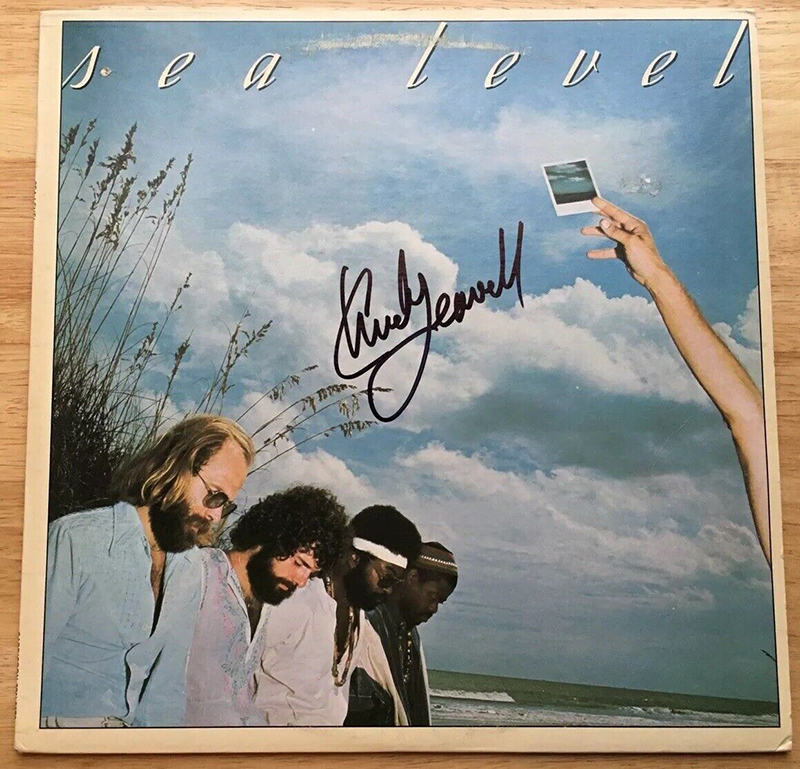
Jessica: Espero que podamos verlo aquí en España, vi que estabas hablando de eso en Facebook.
Chuck: Y definitivamente verás más pronto. En breve estará disponible en streaming, DVD o Blu-ray, pero en este momento solo está llegando al público en su primer formato. Pero interpretamos un par de canciones de Sea Level.
Jessica: Genial. Bueno, Sea Level, aunque fue aclamado por la crítica, nunca alcanzó el éxito que debería haber tenido, a nuestros ojos. ¿Crees que fue por la época? Es como si el rock sureño estuviera a punto de desaparecer en ese momento. En ‘Ball Room’, por ejemplo, el sonido era muy diferente, más ecléctico, más jazz, más funk, más pop… Quiero decir, ¿qué pasa con el rock sureño? (risas) ¿Crees que se extinguió en ese momento? o ¿está ‘still alive and well’ (vivo y goza de buena salud) como diría Rick Derrringer?
Chuck: Sabes, suelo decir que creo que básicamente el rock sureño se transformó en música country. Cuando ves a tipos como Jason Aldean, o Luke Bryan o algunos de Georgia Florida Line, o esos músicos… Creo que acogieron mucho del rock sureño para lo que estaban haciendo. Así que sí, diría que está ‘still alive and well’. Pero, también, creo que, si ves artistas como Susan Tedeschi y Derek Trucks y sus últimos proyectos como la Tedeschi Trucks Band, lo están elevando a un nivel completamente diferente, y me encanta. Creo que es algo hermoso. Porque es lo que debe suceder. Hay que avanzar, no quedarse quietos.
Jessica: Sí, somos humanos. Necesitamos evolucionar.
Chuck: Sí, así que, olé ellos. Y olé también los artistas del country que quieran incorporar esos sonidos en sus discos y en sus actuaciones.
Jessica: Bueno, te uniste a uno de los precursores del rock sureño cuando tenías solo veinte años: los Allman Brothers. ¿Cómo recuerdas aquella grabación de «Brothers & Sisters», tu relación con Gregg Allman y Dickey Betts, y ese elemento aglutinador en todo el disco? ¿Los temas fueron fruto de unas sesiones jam? ¿Fueron todos premeditados?
Chuck: Bueno, antes que nada, debes recordar cómo sucedió todo eso. Gregg me invitó a tocar en su primer álbum en solitario, «Laid back» el cual, contaba con músicos diferentes y un sonido diferente también, que Gregg sintió que no eran del todo adecuados para los Allman Brothers, pero quería usarlos para su disco. Entonces, cuando comenzó ese proceso y estábamos tratando de descubrir cómo arreglar las canciones y pasándolo muy bien todos, Gregg estaba muy feliz. A veces, por la noche, el resto de los Allman Brothers bajaba al estudio y hacíamos una especie de sesiones jam improvisadas. También hay que recordar que esto fue aproximadamente un año, bueno poco menos de un año, después de que Duane Allman tuvo su accidente y murió. La banda en ese momento era una banda de cinco miembros sin ningún reemplazo para Duane, lo que significó mucha presión para todos, especialmente para Dicky Betts, quien tenia que dar un paso adelante y aprender las partes de slide por las que Duane era conocido.
Jessica: ¿Dicky se convirtió en el líder ‘de facto’ en ese momento?
Chuck: Sí … era como si todo el mundo estuviera tratando de entender cómo seguir. Pero durante las jam sessions, de repente, tenías este otro instrumento, el piano, que se sumaba a todo y hacia que todos dijeron «¡guau!». Nadie había pensado nunca en añadir otro instrumento. Podría haber sido un saxofón o una armónica o cualquier otra cosa. El caso es que no puedes reemplazar a Duane Allman, es eso. Y así, la sesión comenzó a sonar bien y divertida y dos o tres semanas después, recibí una llamada del manager de la banda. Cuando entré en la oficina, la banda estaba allí y pasó lo que tenía que pasar. Dijeron: «Oye, escucha, creemos que esto realmente va en una dirección interesante y estamos disfrutando mucho de todo esto. ¿Te gustaría unirte a la banda?» Y yo, ¡Sí, por favor! (risas)
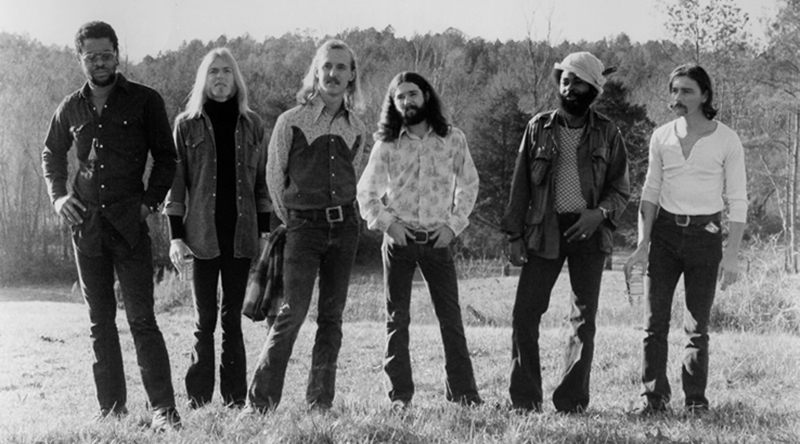
Jessica: ¿Verdad? ¡Por supuesto que sí! ¡Especialmente cuando tienes 20 años! Bueno, estamos muy contentos de que alguien haya tenido esa visión. Es interesante que, como has dicho, hayas trabajado con tantos músicos, con tantos sonidos diferentes. Ya sabes, empezaste con Muscle Shoals, con el órgano, pero una vez tras otra, los guitarristas más grandes de nuestra era (Keith, John Mayer, Eric, Harrison…) te eligen a ti. ¿Por qué crees que tantos guitarristas de diversa orientación coinciden en elegirte a las teclas?
Chuck: Jessica, siempre cuento el mismo chiste: cobro poco. (risas)
Jessica: ¡No puede ser eso! ¡Es demasiada humildad! (risas)
Chuck: Sinceramente, creo que la respuesta honesta es porque sé escuchar. Hay que comprender lo que el artista está buscando, lo que el productor quiere cuando estás haciendo discos, entender lo que debo hacer… ¿Esta canción requiere que haga algunos buenos solos o debería simplemente relajarme y darle algo de color? Entonces, escuchar y entender lo que el artista está buscando… y ser flexible y poder adaptarse para hacer esto o aquello y hacer que todos se sientan cómodos… tal vez esa sea parte del motivo.
Jessica: ¿Es eso lo que hiciste con David Gilmour? Porque su estilo es tan diferente al de tus orígenes. ¿Usaste esa táctica? ¿Escuchar y ser flexible?
Chuck: Bueno, para eso debemos volver a 1984 cuando era director musical de un espectáculo en directo que se transmitía, en la MTV, si recuerdas… Era un espectáculo en directo que se transmitía desde el Teatro Capitol en Passaic, Nueva Jersey llamado “Legends of Guitar”, creo. Link Wray estuvo en el programa, Dickey Betts estuvo en el programa, David Gilmour, Lita Ford y Tony Iommi… y un montón de músicos diferentes. Fue mi primer encuentro con David. Avancemos ahora a unos 8-10 años después, cuando estábamos ensayando para ¿la gira de George Harrison en Londres? y [David] apareció e invitó a algunos de nosotros a su casa. Así que fuimos y tomamos un buen vino y charlamos un buen rato… Luego, pasaron unos 10 años más, y un día, mi esposa me dice: «Oye, Chuck, hay un mensaje en el libro de visitas de tu sitio web y dice que es de David Gilmour». Y el mensaje decía “Hola, Chuck. David Gilmour aquí. De verdad.» Y me dejó una dirección de email y un número de teléfono. Estaba sorprendido. Pensé, alguien me está tomando el pelo… Pero, le puse un correo, pensando que era un poco más seguro que hacer una llamada. Y, efectivamente, me contestó y tuvimos una conversación no mucho después de ese primer intercambio de correos electrónicos, y me dijo: «Escucha, quiero revolucionar un poco a mi banda y pensé en ti. ¿Estás disponible? Porque voy a hacer una gira europea…» Y le dije: «Bueno, la verdad es que estoy disponible, y por supuesto me encantaría hacerlo, pero David, ha pasado mucho tiempo. ¿Quieres que vaya allí y pase un tiempo contigo para asegurar de que quieras hacer esto?» Y él me dijo: «Chuck, sé quién eres y sé lo que haces, así que, si estás disponible, te quiero en la banda.»
Fue un cumplido increíble. Hice mis deberes, eh. David me envió una versión de un show que había hecho en América del Sur no mucho antes de ese intercambio de correos, y lo estudié todos los días durante varias semanas… Hice mis charts e intenté aprender las partes para que cuando entrara, estuviera algo preparado. Funcionó a mi favor porque pude aprenderme esas canciones antes de que empezáramos los ensayos. Por supuesto, había que hacer algunos ajustes… Pero fue un shock cuando me pidió que cantara la segunda melodía de «Comfortably Numb»… Yo estaba como «¿¿Qué??»
Jessica: Eso es increíble. Es uno de esos momentos que más se me vienen a la mente. Eso, y cuando tocaste «Old Love» para la sesión unplugged de Clapton. Cada vez que veo el video, siento escalofríos. Aparte de tu solo en sí, las miradas de los otros músicos – Clapton incluido – no tienen precio. Parece que estás tratando de contenerte durante toda la primera parte, pero cuando Clapton te da esa mirada de “adelante”, vuelas… ni siquiera puedes quedarte sentado durante la última parte del solo… Es increíble.
Chuck: Gracias.
Jessica: Tantos artistas y discos, tantas giras, canciones… Has ayudado a crear, como dirían muchos, la banda sonora de una generación; una increíble banda sonora teñida de rock sureño. Con los Rolling Stones, ¿sientes que puedes aportar algo de tu alma sureña cuando tocas con ellos?
Chuck: ¿Sabes? Le suelo decir a la gente que mis manos trabajan con acento sureño.
Jessica: (risas) Fantástico. ¡Me encanta!
Chuck: Creo que es realmente interesante que no solo los Stones, sino tantos artistas británicos reverencian la música que viene del Sur [de EE.UU.]… Ya sea Delta Blues o la música country o el tipo de música de Nueva Orleans o el Rhythm and Blues, la gran era de gente como Wilson Pickett y Major Lance… así que creo que, en realidad, tengo una gran ventaja de haber crecido en esa era y en esa zona. Me influenció mucho y intento aportar algo de eso con los Stones.
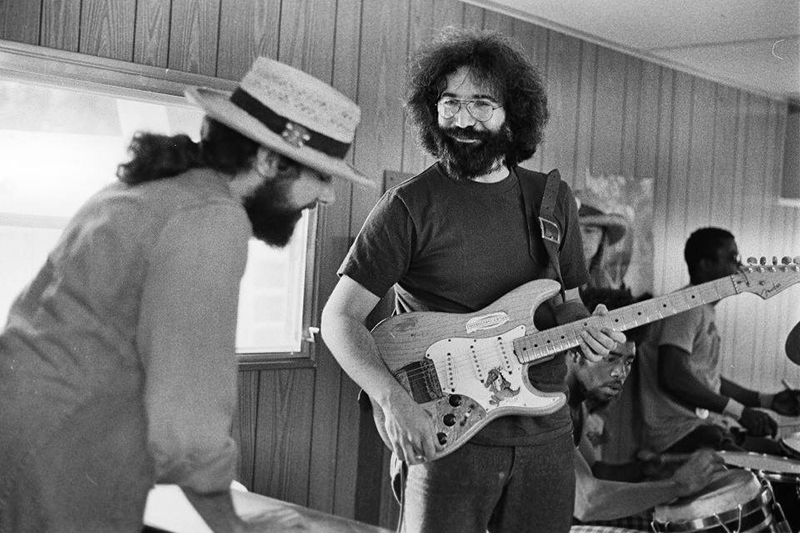
Jessica: Entonces, tus manos tienen un [drawl] (nombre del acento sureño). (risas) Bueno, estabas hablando de documentar las canciones, ¿la planificación de los set list de cada gira y para cada ciudad, se planean con tiempo, o es algo que se va cambiando ante la respuesta del público dependiendo del país o ciudad? Ha habido alguna vez en el que os habéis saltado el protocolo del set list y habéis dicho, venga, vamos a tocar está canción?
Chuck: No, no hay una espontaneidad total porque, seamos sinceros, hay ciertas canciones que la gente quiere escuchar sí o sí: «Start me Up», «Can’t Always Get What You Want», «Jumping Jack Flash»… algunas de esas realmente necesitan estar ahí. Aunque es cierto que los fanáticos incondicionales dirían que les encantaría escuchar un set sin nada de eso y con esas pistas «no usuales». Entonces, hay que buscar el equilibrio. Vengo desde el punto de vista de un fan, mucho antes de unirme a la banda. Con mi primera banda, los Misfits, cuando tenía 14 o 15 años, tocamos muchos temas de la invasión británica que, por supuesto, incluían muchos temas de los Stones… Así que creo que tengo una perspectiva interesante sobre cómo armar una lista de canciones para que sea equilibrada. Diría que tal vez el 65% del set ya es fijo, pero luego tienes una buena parte con la que jugar. Así que puedes tocar un “Can’t You Hear Me Knocking” que hicimos hace poco, o “Out of Time” que se estrenó por primera vez en Madrid durante esta gira.
Jessica: ¿Soléis ensayarlas antes? ¿Las canciones «no usuales»?
Chuck: Por supuesto. Digo mucho que mi parte favorita de trabajar con esta banda es ensayar. Pruebas todas estas cosas y repasamos 80, 85 o 90 canciones en un período de tres o cuatro semanas de ensayo, sabiendo que no vas a poder tocarlas todas. Pero es increíble tocar esas canciones. Así que sí, los ensayos para mí son mi parte favorita. En cuanto a lo que sacas cuando estás sobre las tablas… tiene que ser algo divertido para nosotros tocarlas – algo que vamos a disfrutar tocando, y tiene que ser algo que pensemos que los fans no solo aceptarán, sino que disfrutarán para que reaccionen. Eso, se trata de equilibrio. En cuanto a cómo lo hacemos, pues, en primer lugar, permítame explicar que siempre investigo mucho. Miro hacia atrás y digo: «Vale, ¿Qué hicimos la última vez que estuvimos en esta ciudad?» O, incluso, «¿Qué hicimos la penútlima vez?» Investigamos cuáles fueron las canciones más descargadas o reproducidas en un país determinado, aquí en Europa, por ejemplo… O, qué se reprodujo más en Apple o Spotify o lo que sea… Por lo general, siempre aparecen los sospechosos habituales: «Paint it Black» u otros números conocidos, pero de vez en cuando, aparece algo… Por ejemplo, en Italia, «Streets of Love» fue un gran éxito. Así que usamos la investigación para pensar de forma detenidamente y probar cosas diferentes en los ensayos. Es un proceso…
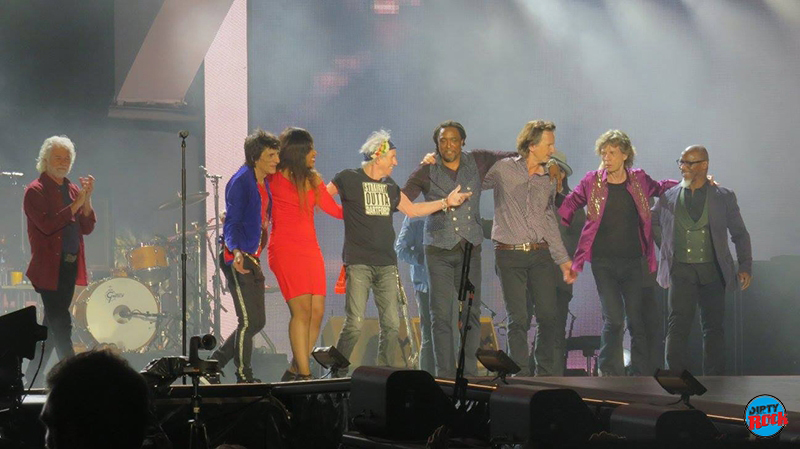
Jessica: Está claro. Cada país, cada público, cada persona, tendrá sus favoritos… Solo para terminar un poquito porque nos estamos quedando sin tiempo… Como decía, queda un mes más de esta gira del 60º aniversario (en Berlín). Pero como dijiste tú, 40 años se cumplen de tu primera gira con ellos en Europa promocionando «Tattoo You» ocupando el puesto de Stu [el gran Ian Stewart], aunque, si no me equivoco, hiciste un especial en Atlanta como invitado un año antes, en el ’81. Esto debe ser como ‘cerrar el círculo’.
¿Cómo recuerdas aquel momento interpretando “She’s a Rainbow” cuando tocaste con ellos la primera vez?
Chuck: Bueno, no creo que hayamos hecho «Rainbow» hasta la gira de STEEL WHEELS, pero cuando hice la prueba para tocar con ellos, por primera vez en el ’81, tocamos principalmente canciones de Chuck Berry, algunos temas del rock and roll de toda la vida…. Por supuesto, acababan de grabar «Tattoo You», así que podría haber sido algo así como “Slave”… “Start me Up”, por supuesto – que fue probablemente el mayor éxito de entonces… o “Waiting on a Friend”… Solo 36 horas después de recibir la llamada, ya estaba en el avión, así que no tuve mucho tiempo para prepararme. Lo bueno de todo eso es que, de niño, había aprendido muchas de esas primeras canciones, así que ya estaba familiarizado con ellas. Y mi actitud fue, «Oye, Chuck, esta es una gran oportunidad… Ve y diviértete. Si te elijan, genial. Si no, diviértete de todos modos.» Entonces, traté de mantener una perspectiva casual y simplemente disfrutarlo.
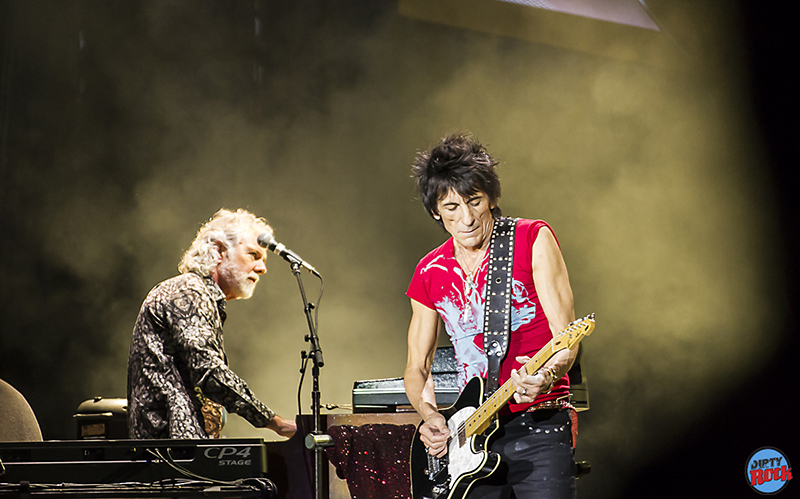
Aunque bueno, en ese momento, no conseguí el trabajo. Ian McLagan hizo esa gira. Era muy amigo de Ronnie Wood porque estaba en Faces con Ronnie, y también había hecho la gira anterior en el ‘78 o algo así. Así que me decepcioné un poquito, pero cuando llegamos a Atlanta, Ian Stewart me llamó y me dijo: «Oye, vamos a estar por tu zona para hacer un bolo privado en el Teatro Fox. ¿Te gustaría venir y pasarlo bien?» Y yo, ¡Sí, por favor! Fue tan divertido. Y los chicos fueron geniales conmigo. La primera vez que conocí a Mac – Ian McLagan – nos hicimos muy amigos al instante y nos mantuvimos en contacto a lo largo de los años, hasta que él falleció… Y así, al final de esa gira, llegué a casa y Stu me llamó y me dijo: «La banda va a ir a Europa el año que viene (esto fue quizás en noviembre o diciembre del ’81) y definitivamente, todos quieren que vengas», así que finalmente pude entrar.
Jessica: Bueno, muchos pianistas han pasado por las filas de los Rolling Stones, pero siento que realmente has dejado tu ‘huella’ y un legado en la banda que es un poco diferente a otros pianistas. Realmente agradecemos tu tiempo y tu franqueza. Buena suerte con el resto de la gira y con todos tus proyectos paralelos y tenemos muchísimas ganas de ver ese especial de PBS, «A Night of Georgia Music».
Chuck: Gracias, estoy realmente agradecido. No tuvimos la oportunidad de hablar de mi disco big band, pero tal vez le des un poco de espacio. Fue muy divertido; una experiencia muy especial y espero llegar a hacer más de ese tipo de cosas.
Gracias Jessica, eres increíble.
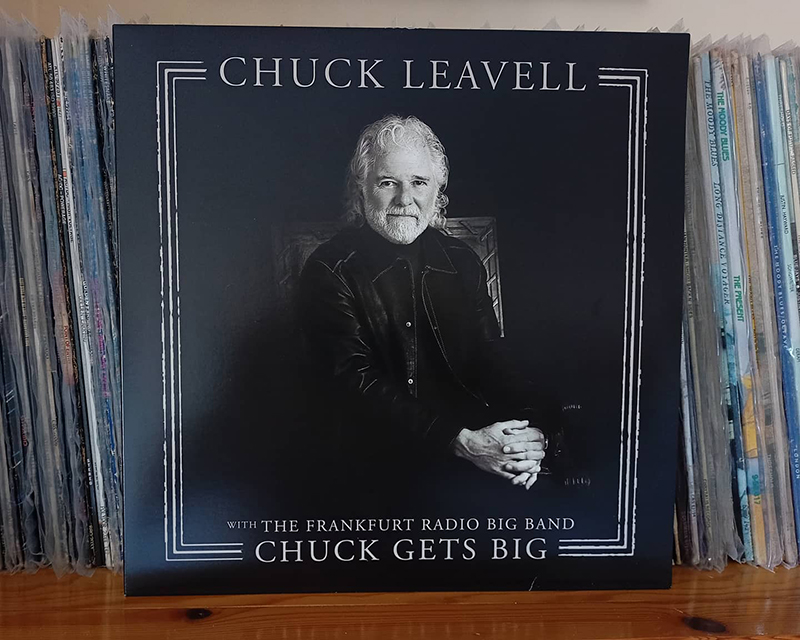
Interview with Chuck Leavell:
JESSICA: Dirty Rock Magazine in Spain here with Chuck Leavell. Thank you so much, Mr. Leavell, for taking time out of your busy schedule to have a chat with us at Dirty Rock. I honestly don’t know where you find the time or the stamina to keep up with all that you do… Apart from being one of the greatest pianists in rock ’n’ roll history, you’re the musical director of the Rolling Stones’ 60th anniversary tour… rehearsing, playing, documenting everything from one city to the next… How did you get the “gig” of being the musical director of the band?
CHUCK: Well it’s something that somewhat morphed over time. I sometimes sort of laugh at the title sometime. Mick and Keith are actually the musical directors of the Rolling Stones. Maybe I should say I’m the ASSISTANT musical director. It came about that back in 1989 we were rehearsing for the STEEL WHEELS tour, when I began to take a lot of notes. I began to make handwritten chord charts of every song that we would rehearse. I would note if there were horn parts when we rehearsed them, I would note if there were background vocals and what they were doing, or if we changed the arrangement for any reason compared to the record for any reason, as sometimes the band does. So, my technician at the time saw me doing this, and he said to me, “Hey, rather than just letting these pieces of paper just sit around and get wrinkled or whatever, let me go out and get a notebook.” And he did. And every time I would do this, he would put the notes inside a plastic sheet inside the notebook. So, this process went on throughout the rehearsal period. When we did sound checks for the STEEL WHEELS tour, if there was anything of note, I would add to it. And then, the next tour was VOODOO LOUNGE and I continued the process, and throughout the years – 40 years now! – there’s been a lot of notes! And so now I have these two encyclopedic notebooks with all this ‘reference material’, if you will. A lot of it, I can keep in my head, Jessica, but if I can’t quite recall an arrangement that I did, then we have a reference. So, we carry those notebooks around with us and that process translated into me, from time to time, giving visual cues. Especially when Charlie was with us, because Charlie, being a jazz drummer, well, sometimes rock and roll confused him from time to time, to be honest, so if there was a breakdown coming or a change in the arrangement, he could look at me and I would give him a hand signal or a nod. Sometimes for Mick I would do the same, because he’s out working the crowd and, you know, getting people to clap their hands and sing along, and so that’s how the title came about.
JESSICA: Speaking about documenting, we have your recent film “The Tree Man”, that reminded us that apart from being a musician, you’re also made of flesh and blood and we were able to see a more ‘human’ side of you… The documentary made your long-standing environmental stance more well-known to many of your fans and followers… What is your viewpoint as to the future of our planet? Are you optimistic?
CHUCK: Is the glass half empty or half full? Definitely half full, but I fear that the glass is getting lower and that’s a concern for all of us. It’s just undeniable… Anybody that says that climate change isn’t real or that global warming isn’t real is pretending. They’re just not living in the real world – it’s so obvious. We see the weather changes, the fires, the droughts, we see the ocean rising… These are all undeniable facts, and you know, am I concerned? Yes. In my own country, in America, we’re not moving fast enough. We started moving fairly well under the Obama administration, and then the Trump administration came in and put the brakes on everything. Now, Biden is doing his best to catch up, but it’s not easy. For instance, if I if I can give you this for instance: a country like Venezuela – a poor country, a third world country… they depend on fossil fuels for revenue to make money. They don’t have a lot of anything else to make money.
JESSICA: You take that away, and what do they have?
CHUCK: Right. So it’s complicated. You can’t just say: “Venezuela! Don’t pull oil out of the Earth!” What else are they going to do? So, these are complicated situations that have to be mitigated and solved by the wealthy countries of the world, including the United States and parts of Europe and whatnot. You know, all we can do is all we can do, but I think we need to do more.
JESSICA: Well, we hope that the upcoming generations will be able to reverse the situation or at least, put a hold on it. I loved the film, and especially all the quotes and quips from the people involved… I really got a kick out of when Billy Bob Thornton called you a «rock and roll unicorn»… It was fantastic! (laughter) It’s just you have so many different facets. One of them is producing – and you’ve done it with quite a lot of success. Is there any reason that it seems that you haven’t delved deeper into that area?
CHUCK: Well, I’ve done a little bit of it. But I guess, really, people need to reach out to you for that service, right? Somebody needs to call me and say, “Hey, I need you to help me produce a record,” and quite honestly, I just haven’t had that many calls.
JESSICA: You’re too busy, how are they going to find you? (laughter)
CHUCK: Well, I don’t know. I would like to do more. I think I do have at least a bit of a skill set for it. But look, I’m grateful that I have all I do; both in the environmental world and in the world of music… and with my family, as well.
JESSICA: Well there are so many things that you’ve been so successful at throughout such a long career, but we at Dirty Rock feel that Sea Level is where you seemed to find your true self more and really shine. What did creating such an extraordinary band, that was so ahead of its time, mean to you?
CHUCK: (laughter) Well! Thanks for bringing it up! It meant a lot to me. You know, first of all, it thrust me into the forefront. I had never been the leader of a band or the principle singer or that kind of thing. So, it was a little bit worrisome. I wasn’t used to it and I had to sort of make myself prepare for the role and go forward with it.
JESSICA: You were still very young at the time. You were in your early 20s right?
CHUCK: That’s correct. Yeah, I was 20 when I joined the Allman Brothers band and that was about a 5-year experience, so I was 24 when Seal Level came about. But, I learned a lot from it. As you know, the personnel in Sea Level changed a little bit from album to album. And that was very much a learning experience: working with other musicians and writers that came in and played. Randall Bramblett, my good friend, and his friend Davis Causey came into the band and they really elevated what Sea Level was all about. We’re still very, very good friends and I still think that Randall Bramblett is one of the best secret weapons that more people need to know more about. He’s a wonderful man and an incredible songwriter and singer and performer. But, anyway, it was a wonderful experience and it kind of made me go to the forefront, so now, I’m much more comfortable when I have to do solo shows on my own. And, by the way, when I do those solo shows, I always do at least two or three Sea Level songs. Matter of fact, we just had one event… We have a little side project called ‘Mills, McDuffie and Leavell’. It’s Mike Mills from REM, Robert McDuffie, who is a world class and world-renowned violinist, along with myself. And, we did a thing called “A Night of Georgia Music”. All the music was either performed by Georgians or made famous by Georgians. This was done, by the way, with a full orchestra – a 22 piece orchestra – and it just premiered last night in America on one of the PBS channels. So, you’ll hopefully see more of this.
JESSICA: I hope we can get it here in Spain. I saw that you were talking about that on Facebook.
CHUCK: And you’ll definitely be seeing more of it soon. It will eventually be available in streaming or on DVD or Blu-Ray, but right now, it’s just kind of making its way to the public in its first form. But, we did a couple of Sea Level songs on that.
JESSICA: Fantastic. Well, Sea Level, although it was critically-acclaimed, never reached the success it should have had, in our eyes. Do you think it was because of timing? It seemed like Southern Rock seemed to be something on the way out at that moment. On “Ball Room”, for example, the sound changed a lot: it was eclectic, more jazz, more funk, more pop. I mean, what’s the deal with Southern Rock, anyway? (laughter) Do you think it died out back then or is it ‘still alive and well’ as Rick Derrringer would say?
CHUCK: (laughter) You know, I say to people that I think that Southern Rock kind of morphed into Country music, basically. When you see guys like Jason Aldean, or Luke Bryan or some of the Georgia Florida Line, or those players… I think they adopted a lot of Southern Rock into what they were doing. So it is ‘still alive and well’ in that form. But, also, I think, if you look at artists like Susan Tedeschi and Derek Trucks and their latest projects, they’re just taking it to a whole different level… And I just love it! I think it’s beautiful. Because that’s what needs to happen. It needs to go forward, it doesn’t need to stay static.
JESSICA: Yeah, we’re humans. We need to evolve.
CHUCK: Yeah, so kudos to them. And also, kudos to the Country artists who want to incorporate those sounds on their records and in their performances.
JESSICA: Exactly. Well, you joined one of the forerunners of Southern Rock when you were just twenty years old: the Allman Brothers. What do you remember about your relationship with Gregg Allman and Dickey Betts when you recorded “Brothers & Sisters”? There was this kind of musical cohesion that you had throughout the album. What do you remember about the recording process? Did the songs on the album come from jams or were they premeditated?
CHUCK: Well, first of all, you have to recall that the way this came about was that I was invited to play on Gregg’s first solo album “Laid Back”. And, of course, that was with a different set of musicians and had a different flavor of songs as well, that Gregg felt weren’t quite right for the Allman Brothers, but that he wanted to use for his own [record]. So, as that process began and we were trying to figure out how to arrange the songs, everyone was having a great time; Gregg was very happy. And, after hours, sometimes, the rest of the Allman Brothers would come down to the studio and we’d have these jam sessions. And, you also have to recall that this is approximately a year, actually not quite a year, after Duane Allman had had his accident and was killed. So the band had gone out as a five piece band with no replacement for Duane, which put a lot of pressure on everyone, especially on Dickey Betts, who had to step up and learn the slide parts that Duane was known for.
JESSICA: Dickey kind of became the ‘de facto’ leader at that point?
CHUCK: Yeah, well… it was kind of like everyone was trying to figure it out. But during the jam sessions, all of a sudden, you had this other instrument – the piano – which added to everything and everybody kind of went “Wow!”… Nobody had ever thought about adding another instrument. It could have been a saxophone or a harmonica or something else. You just don’t replace Duane Allman. That’s the point. And so, the session started sounding fun and within two or three weeks, I got a call from the band’s manager and I walk into the office and the band is all there, and the shoe dropped. And they said, “Hey, listen. We feel like this is really going in an interesting direction and everybody’s really enjoying it. Would you like to join the band?” Yes, please!
JESSICA: Right? Definitely! Especially when you’re 20! Well, we’re so happy that someone had the vision to see that. It’s interesting that, as you’ve said, you’ve worked with so many musicians, with so many different sounds. You know… you started out with Muscle Shoals, with the organ, but time after time, the greatest guitarists of our times (Keith, John Mayer, Eric, Harrison…) have chosen you as their pianist. Why do you think such different guitarists with such different backgrounds and sounds all come looking for you?
CHUCK: Jessica, I have a joke. It’s that I work cheap. (laughter)
JESSICA: (laughter) It can’t be that! That’s too much humility!
CHUCK: I honestly believe that the honest answer is being a good listener. Understanding what the artist is looking for, what the producer is looking for when you’re making records, finding the right idea of what I can do for you… Does this song require that I do some nice solos or should I just lay back and provide some color? So, being a good listener and understanding what the artist is looking for and being flexible and malleable, so that you can do this thing or that thing, and make everyone comfortable… maybe that’s part of the reason.
JESSICA: JESSICA: Is that what you did with David Gilmour? Because his style is so different from your origins… Is that the same tactic that you used: listening and being flexible?
CHUCK: Well, let me go back to 1984 when I was the musical director of a live show that was broadcast, back in the MTV era, if you recall… This was a live show at the Capitol Theatre in Passaic, New Jersey that was filmed and called “Legends of Guitar”, I think. Link Wray was on the show, Dickey Betts was on the show, David Gilmour, Lita Ford, Tony Iommi… and all these different players. So, that was my first experience with David. So fast forward some 8 or 10 years later, when we were rehearsing for, maybe, the George Harrison tour in London, and [David] showed up and invited some of us to his house. So, we went and had some nice wine and some nice chat… And then, another 10 years pass by, and my wife says, “Hey, Chuck, there’s a message on the guest book of your website that says it’s David Gilmour.” The message said “Hi, Chuck. David Gilmour here. Honest.” (laughter) And he left an email and a phone number which surprised me. I thought: ‘Somebody’s scamming me… but I’ll send an email.’ That sounded somehow a little safer than making a call. And sure enough, he got right back to me and we had a conversation not long after that first email exchange and he said, “Listen I want to shake my band up a little bit and I thought about you. Would you be available? Because I’m going to do a European tour…” And I said, “Well, as a matter of fact, I am available and of course I’d love to do it. But,” I said, “David, I’d love to do it, but it’s been a long time. Would you want me to come over there and spend some time with you and make sure you want to do this?” And he said, “Chuck I know who you are and I know what you do so if you’re available, I want you in the band.”
So, that was an incredible compliment. Hey, I did a lot of homework. You know, David sent me a live version of a show that he had done in South America not long before this this email exchange, and I studied that thing every day for several weeks. And I made charts to try to learn the parts so that when I walked in the door, I wasn’t cold. That actually worked to my advantage, because I was able to learn those songs before we actually started the rehearsals. Of course, there were some adjustment that needed to be made… But it was such a shock when he asked me to sing the counterpart to “Comfortably Numb”… I was like “What??” (laughter)
JESSICA: That’s incredible. It’s one of those moments that most stick out in my mind. That, and when you played Old Love for Clapton’s unplugged session. Every time I see that video, I get chills! Apart from the solo itself, the looks on the other musicians’ faces – Clapton included – are priceless! It seems like you’re trying to hold back during most of the song, but then when Clapton gives you the go-ahead, you just take off… you can’t even stay seated during the last part of the solo! It’s incredible!
CHUCK: Thank you.
JESSICA: So many artists, so many tours, songs and albums… You’ve helped create, as many would say, the soundtrack of a generation; a pretty Southern Rock–tinged soundtrack, in fact. Now with the Rolling Stones, do you feel like you’re able to put some of your southern touch on the music when you play with them?
CHUCK: You know… I tell people that my hands work with a Southern accent. (laughter)
JESSICA: Fantastic. I love that!
CHUCK: I think it’s really interesting that not just the Stones, but so many British artists revere the music that comes from the South… Whether you’re talking about the Delta Blues or Country music or New Orleans type of music or rhythm and blues, the great era of people like Wilson Pickett and Major Lance […] So, I think it’s actually an advantage that I grew up in that era and in that area. It influenced me a great deal and I bring some of that to the table with the Stones.
JESSICA: So, your hands have a southern [drawl]. (laughter) Well, you were talking about documenting things: Are the set lists ‘set in stone’ for each tour and each city, before the tour? Or, does it change depending on the audience or the response that you get in each venue? Do you ever skip the set list and say, «Forget it! Let’s be spontaneous: we’re going to play this song!» and change it up on the spot?
CHUCK: No, there’s no total spontaneity because let’s face it, there are certain songs that people are dying to hear: “Start Me Up”, “Can’t Always Get What You Want”, “Jumping Jack Flash”… Some of those really need to be in there. Now, the hardcore fans would say they would love to hear a set with none of that and all those really deep-cut tracks. So, it’s a balancing act. I come from the viewpoint of a fan, long before I joined the band. In my first band, the Misfits – when I was 14 or 15 years old – we played a lot of British invasion and that certainly included a lot of the Stones… So, I think I have an interesting perspective on how to put a set list together that will be a balanced list. I’d say maybe 65% of the set is going to be written “in stone”, as you say, but then you get a good bit to play with. So, you can bring a “Can’t You Hear Me Knocking”, which we did recently, or “Out of Time”, which premiered for the first time ever in Madrid on this tour.
JESSICA: Do you usually rehearse them beforehand? The deep cuts?
CHUCK: Oh, yeah! I tell people that my favorite part of working with this band is rehearsing, because you try all these things… We go through 80, 85… 90 songs in a period of three or four weeks of rehearsal. You’re not going to bring that many to the table, but it’s just incredible to play those songs. So yeah, the rehearsals for me are my favorite part. As far as the point of what do you bring to the stage, it’s multifold… It has to be fun for us, it has to be something that we enjoy playing and it has to be something that we think that the fans not only will accept, but will also enjoy and react to. So, it’s a balancing act. As far as how it works, first of all, let me explain that I always do a lot of research. I look back and I say, “Okay, what did we do the last time in any given city?” “What did we do even the time before that?” We do research, in terms of what were the most downloaded or streamed songs in any given country when we’re here in Europe, for instance… Or, “What was most played on Apple or Spotify or whatever”… It’s usually the usual suspects that show up: “Paint It Black”, or other well-known numbers… But, every now and then, something will pop up… For instance in Italy, “Streets of Love” was a big hit. So, you can get some good ideas about this research and think things through and in the rehearsals, try things out. It’s a process…
JESSICA: Every country, every audience, every person has their favorites… Just to wrap up things up a little bit because we’re running out of time. Like I said, one more month of this 60th anniversary tour – you finish in Berlin. But, as you said, you’ve been with them for 40 years! Back on the «Tattoo You» European tour, you took Stu’s place, but you had actually played with them for the first time in Atlanta, if I’m not mistaken – you did a guest appearance in ’81… Speaking about your favorites… You said you had the band that played the Stones’ music when you were 14. It must have been kind of a ‘full circle’ kind of thing. What do you remember about playing “She’s a Rainbow” back then with them?
CHUCK: Well, I don’t think we did “Rainbow” until the STEEL WHEELS tour, but when I first auditioned in ‘81, it was largely Chuck Berry songs, some of the earlier rock & roll stuff. Of course, they had just recorded “Tattoo You”, so, it could have been anything… “Slave”… “Start Me Up” of course was probably the biggest hit then…. “Waiting on a Friend”… I got the call and I was on the plane within 36 hours, so I didn’t have a lot of time to prepare. The good news was that as a kid, I had learned a lot of those early songs, so I was already familiar with them. And my attitude was, “Hey, Chuck, this is a great opportunity… Go have fun. If you get the gig, awesome. If you don’t, have a good time anyway.” So, I tried to keep a casual perspective and just enjoy it. So, I didn’t get the gig to begin with. Ian McLagan did that tour. He was very close with Ronnie Wood because he was in Faces with Ronnie, and he had also done the previous tour in ‘78 or something. So, I was disappointed not to get it. But, when we got to Atlanta, Ian Stewart called me up and said, “Hey we’re going to be in your backyard and we’re going to play an unannounced show at the Fox Theater. Would you like to come and have a bash?” Yes, please! (laughter) And it was so much fun! The guys were great to me. The first time I met Mac – Ian McLagan – we became instant friends and stayed in touch through the years, up until he passed away… And so, at the end of that tour, I get home and Stu calls me and says, “The band’s going to go to Europe next year – this was maybe November or December of ’81 – and everybody definitely wants you!” So, that’s how I finally got the position.
JESSICA: Well, lots of pianists have passed through the ranks of the Rolling Stones, but I feel like you’ve really left your mark or a legacy on the band that’s a little different compared to other pianists. We really appreciate your time and your candor. Good luck with the rest of your tour and all of your side projects and we’ll be looking forward to that PBS special, “A Night of Georgia Music”.
CHUCK: Thanks, I really appreciate it. And, we didn’t get a chance to touch on the Big Band record, but maybe you’ll give it a little space. It was a lot of fun; a very special experience. I hope to get to do more of that kind of thing. Thank you Jessica, you’re amazing.
